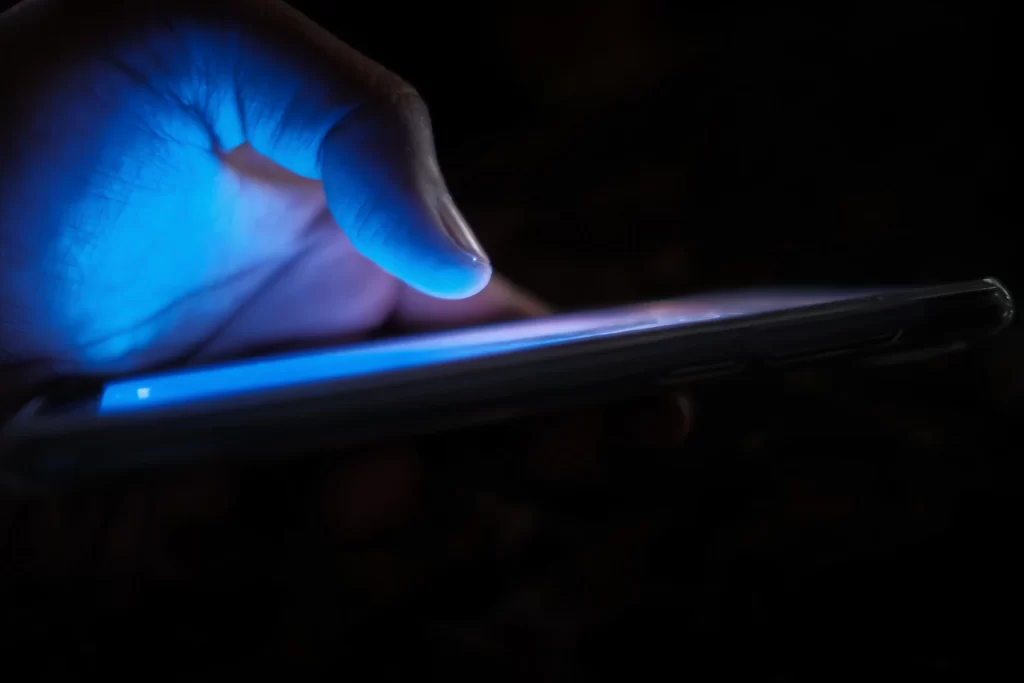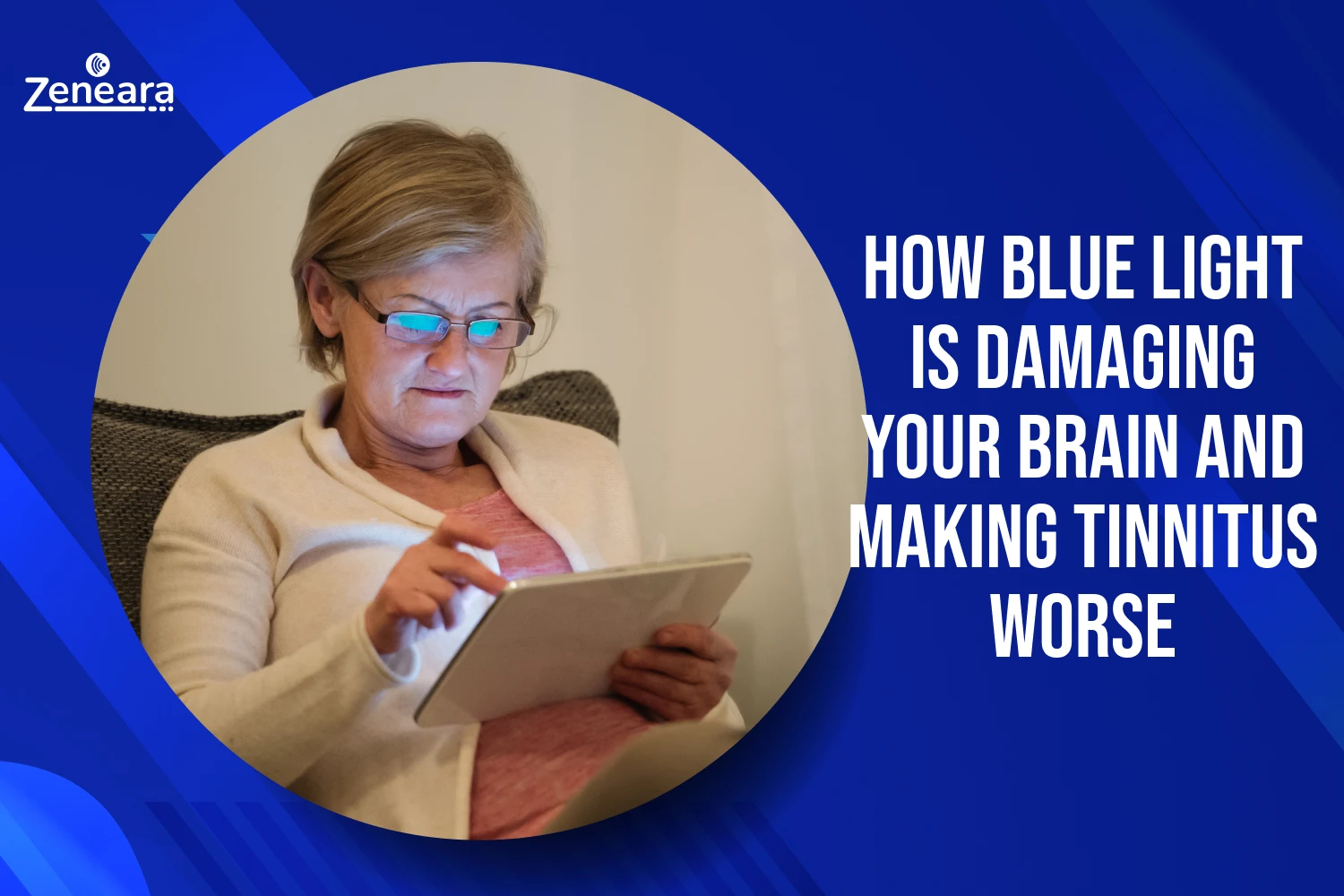Hey, it’s James Barrett here.
Let me ask you something… how many hours a day do you spend staring at your phone, tablet, or computer? I know I’ve been guilty of it too.
But have you ever noticed that after a long day of screen time, your mind feels foggy, like your brain just can’t keep up? If you suffer from tinnitus, have you noticed that the ringing in your ears seems to get worse after all that screen time?
I’d love to hear your thoughts. Do reply to me.
I’ve been hearing more and more stories about this lately, and it’s time we dig into what’s really happening. The blue light from our screens is doing much more damage than we think—not just to our ears, but to our brains too.
I’m sharing this because, as someone dedicated to helping people manage their tinnitus, I believe it’s essential to examine the everyday habits that could worsen symptoms.
My core belief is simple: the more informed you are, the more power you have to protect your brain and ears. And in this case, something as common as screen time could be working against you.
Blue Light and Its Hidden Dangers for Brain Health and Tinnitus

You’ve probably heard that blue light affects sleep, but did you know it could also impact brain function and worsen tinnitus?
Blue light is a high-energy wavelength that comes from screens, and while it might help you see things clearly, it’s doing a number on your brain’s ability to function at its best.
Mental Fatigue and Brain Fog
After hours of exposure to blue light, your brain feels overloaded. That’s because blue light messes with your circadian rhythm—the natural process that regulates sleep.
Poor sleep leads to mental fog, difficulty concentrating, and overall cognitive fatigue. For those with tinnitus, this mental fatigue can make the ringing in your ears more noticeable and more irritating.
Neural Inflammation
Excessive blue light exposure can cause inflammation in your brain, particularly in the auditory cortex, which processes sound. When this part of the brain is inflamed, it’s more sensitive to noise— making the phantom tinnitus sound louder and more persistent.
Dopamine and Mood Disruption
Blue light can reduce dopamine levels in your brain, affecting mood regulation. When dopamine drops, stress and anxiety levels rise, which, in turn, can worsen tinnitus. But even beyond that, it leaves you feeling more mentally drained, which impacts your overall brain health and resilience.
How to Protect Your Brain and Ears from Blue Light

While we can’t avoid screens entirely, we can take steps to limit the damage blue light does to our brains and ears:
Limit Evening Screen Time: Avoid using screens at least two hours before bed. This will help your brain wind down naturally and improve the quality of your sleep.
Use Blue Light Filters: Turn on your devices’ “night mode” or blue light filter to reduce the amount of harmful blue light reaching your eyes and brain.
Blue Light Blocking Glasses: If you’re on screens all day, invest in blue light-blocking glasses. They can help prevent eye strain and reduce cognitive fatigue from prolonged exposure.
Take Regular Breaks: Give your brain a rest by following the 20-20-20 rule—every 20 minutes, look at something 20 feet away for 20 seconds. This simple habit can relieve strain and keep your brain from becoming overstimulated.
Practice Stress Reduction: Stress has a huge impact on brain health and tinnitus. Mindfulness techniques or breathing exercises can help reduce stress, improving mental clarity and the severity of tinnitus symptoms.
When it comes to managing tinnitus, it’s not just about your ears. It’s about your entire brain. The effects of blue light from screens are real and do more harm than most people realize.
By controlling your screen time and reducing blue light exposure, you can protect your brain, sleep better, and help manage your tinnitus symptoms.





